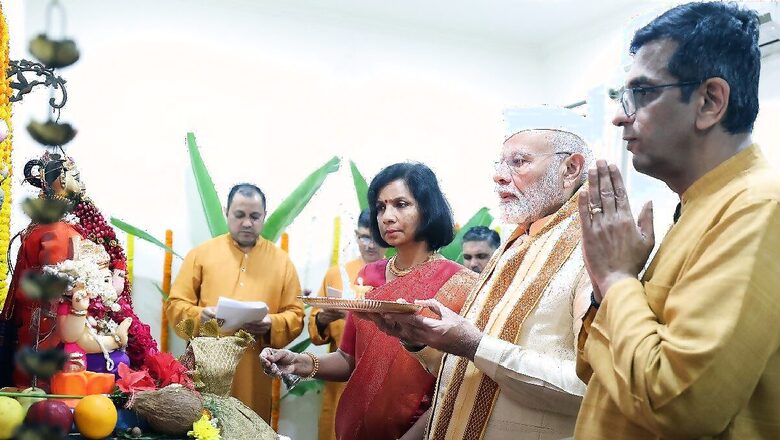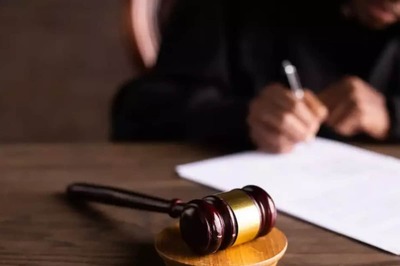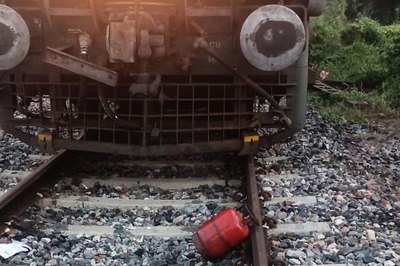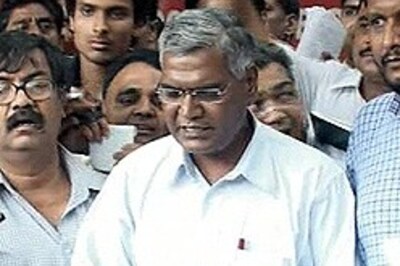
views
Prime Minister Narendra Modi’s visit to Chief Justice of India DY Chandrachud’s residence for Ganesh Puja has stirred up a controversy with opposition parties and some legal professionals raising questions about the “priorities and independence of the judiciary”, while a few have argued that this sparks apprehensions about the judicial system itself.
However, politics aside, we look at the legal aspects of the issue to weigh the question, did the Chief Justice of India overlook or violate any law or procedure by meeting PM Modi?
Let’s look at the present guidelines and regulations.
The Supreme Court Judges Rules, 1959, governs the salaries, pensions, and post-retirement benefits of judges but is silent on matters of their conduct.
Similarly, The Supreme Court Judges (Salaries And Conditions Of Service) Act, 1958, does not impose any restrictions on Supreme Court judges, even though it does lay out “service conditions” in relation to medical facilities and other allowances under Section 23.
Another set of advisory guidelines has been laid down and adopted internationally by the Round Table Meeting of Chief Justices held at the Peace Palace, The Hague, November 25-26, 2002, and is called the Bangalore Principle of Judicial Conduct.
Value 1.3 of the aforementioned principles says: “A judge shall not only be free from inappropriate connections with, and influence by, the executive and legislative branches of government, but must also appear to a reasonable observer to be free therefrom”.
Another set of guidelines called Restatement Of Values Of Judicial Life, adopted by a Full Court Meeting of the Supreme Court of India on May 7, 1997, under clause 1 says: “The behaviour and conduct of members of the higher judiciary must reaffirm the people’s faith in the impartiality of the judiciary.”
Looking at these principles, we need to look at some of the CJI’s past judgments to analyse if there is any “influence” on the Chief Justice from the executive or the government and has he showcased “impartiality” in his judgements.
Chief Justice of India (CJI) Chandrachud has, on occasions, publicly acknowledged the Prime Minister, such as on February 22 this year, when he thanked PM Modi for helping him during his Covid diagnosis. However, despite this, the CJI has made several rulings that have gone against the government’s stance.
Now, many have alleged a violation of Clause 10 of Restatement Of Values Of Judicial Life adopted by the SC.
Clause 10 says: A Judge shall not accept gifts or hospitality except from his family, friends.
The Prime Minister and the Chief Justice of India have met at key events, including Constitution Day 2022, the International Lawyers’ Conference in September 2023, and the 75th anniversary of the Supreme Court in August 2023.
If, for argument’s sake, one accepts a violation, any of the official invitations shared by the Prime Minister to the CJI or vice versa for any official event will count as a violation of Clause 10. Thus, there does not seem to be any strict applicability of Clause 10 in the present case nor does any rule strictly govern how the CJI should conduct himself in his personal capacity.

















Comments
0 comment